I am grateful every day for the opportunity the Lord has given us to live here on this farm. The fact that my children can enjoy such immense freedom in such a safe space, the fact that they know and appreciate the immense work it takes to coax food from the soil, the fact that they so deeply value the balance between intense labor and wide-open play… it’s all rooted in this sweet little patch of earth God has given them to walk as they grow.
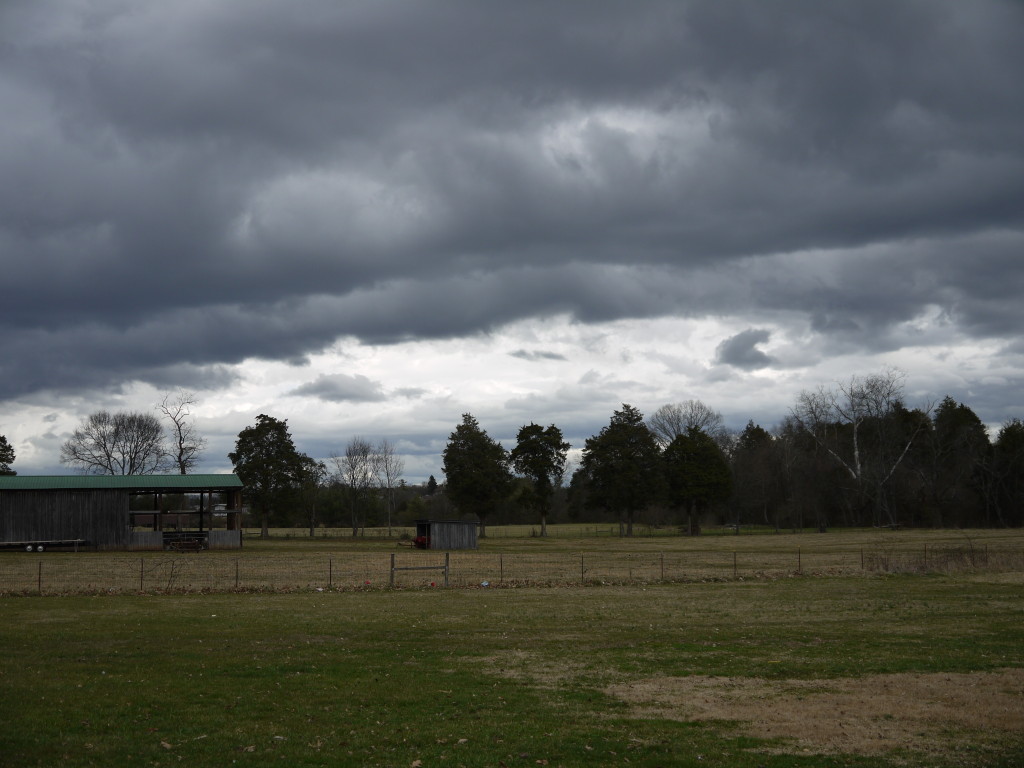
Most days, the lessons we learn here are good ones. Leave unripe blueberries on the bush; they’ll be ready tomorrow. Fields that flood in the winter grow great pumpkins in the summer. Leaving eggs unwashed means they last longer. Stay out of a recently-cut hay field unless you want to risk run-ins with homeless rodents and snakes. These are practical things my kids will carry with them, the background music of a childhood spent in rhythm with agriculture.
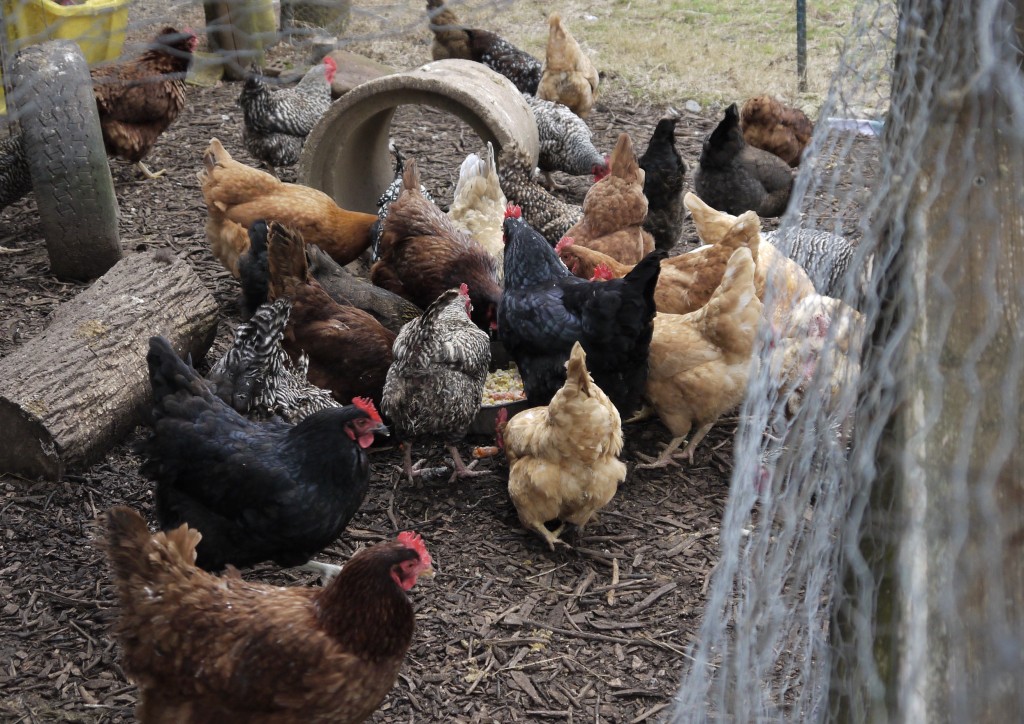
Sadly, they’ll also carry some harder lessons in their hearts. Stewarding land and animals means watching crops fail despite your best efforts, and experiencing death first hand. Our children have held failing rabbit kits in their palms as they’ve breathed their last ragged breaths, and have been startled to find their favorite rooster lifeless on the coop floor for no reason at all. They’ve helped process rabbits for the freezer and have watched their mom wring the neck of a hen whose progressive illness gotten to the point where mercy looked like ending her misery. These are ugly moments, but moments we don’t hide, because they are life. Real life. Not the sanitized, removed-from-reality life so common in suburban America.
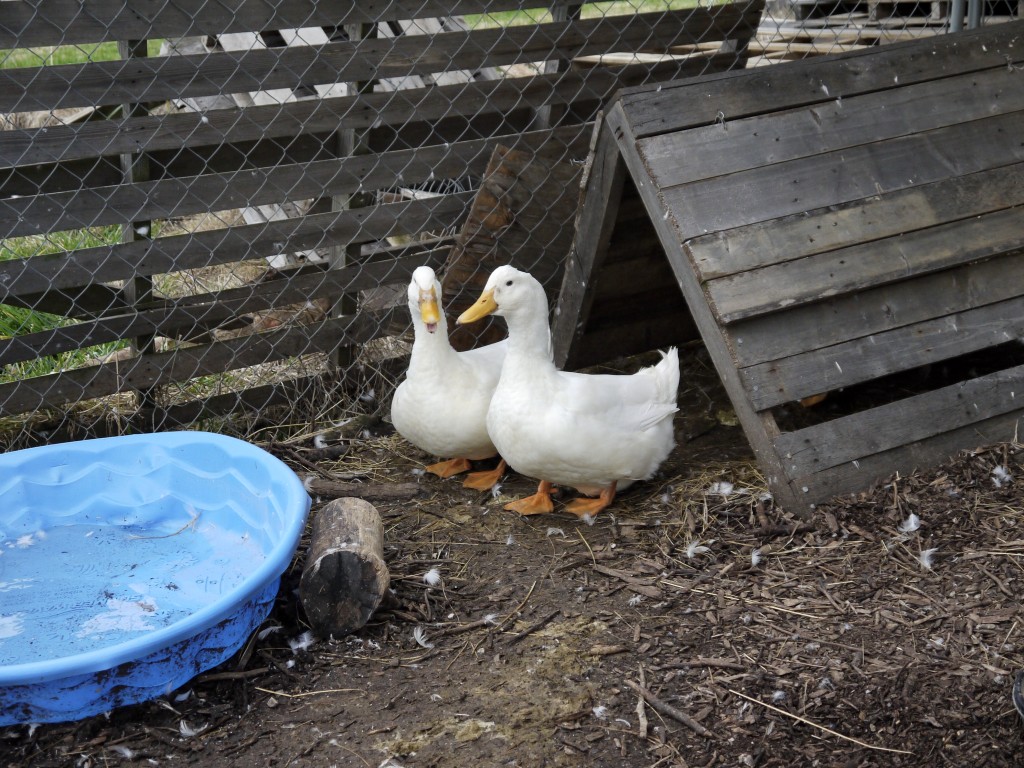
Somehow, I felt we had covered most of the harder scenarios in the narrative of teaching our children that the world was not created to be served up in wrapped in plastic, on a styrofoam tray, with a little pad underneath to absorb the blood. I thought we had hit the firsts of most of the traumatic moments, and were now walking in the known. And then…
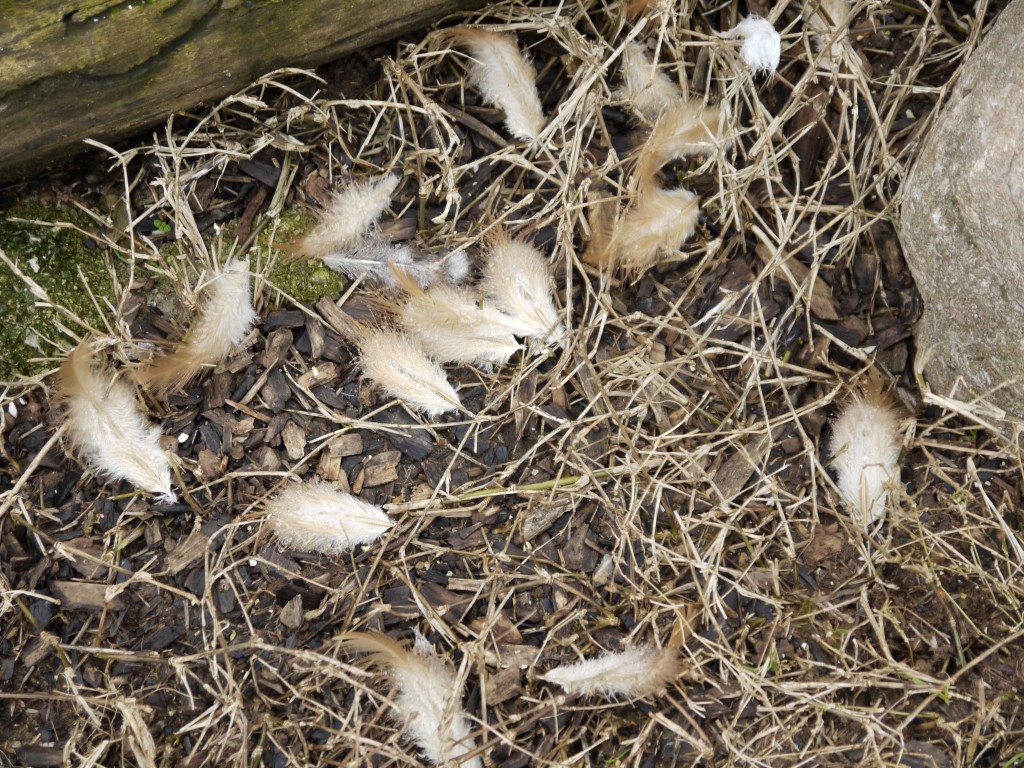
Last weekend, in the midst of a round of February flooding, two very friendly huskies found our chicken coop. They’d been down here before, and we had run them off. But this time, they dug under the buried wire and did what dogs not trained for farm work do when they encounter a whole flock of flightless birds penned for their own safety during inclement weather: they began attacking them.
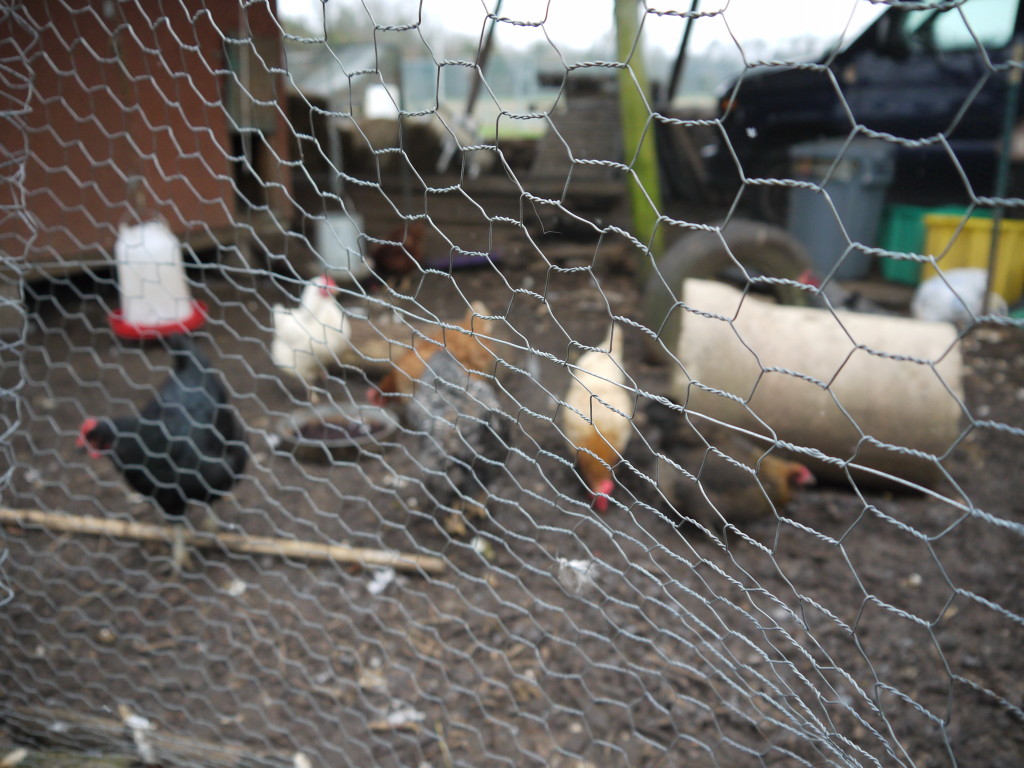
We discovered the situation mid-carnage, and managed to stop the slaughter. But in the end, a number were killed, and several more had to be put down due to grievous injury. The children and I trudged through the mud in flying snow to account for missing chickens, triage the damaged, and collect the bodies of the dead. There were tears for favorite friends suddenly gone, and anger over dogs not kept from escaping, and a macabre cleanup that found us hauling loads of mulch from the back fields to cover what blood and such as we could not shovel out, in the hopes of not drawing coyotes or raccoons to finish off the remaining flock.
It was not a good day on the farm.
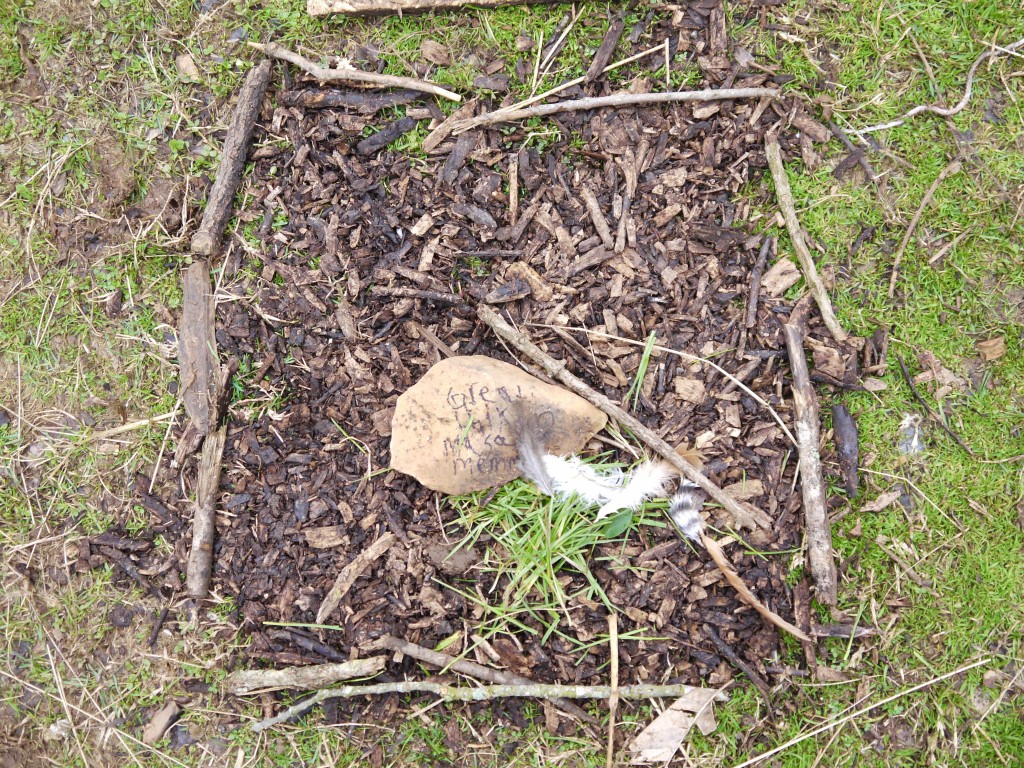
The next day, the younger children erected this remembrance of the day: a memorial, they said, to “The Great Chicken Massacre.” We’ve all recovered from the events, but they are now part of our story, part of the collective memory of our family. We will take this with us, and it will be woven in to our appreciation of that next batch of fluffy baby chicks, or our wariness when we spot a wayward dog skirting the edges of the property. This bad will make our good better, and will give a greater understanding of the delicate nature of the lives we all live. That’s the real ebenezer of The Great Chicken Massacre, and of all of the lessons learned here, whether for the adults or for the children— deeper meaning found in our own days, whether good, or bad.
I am so sorry!
Your poor family!
The huskies *will* be back.
Huskies, as a breed, are known to escape frequently, and easily. They love to wander.
They also have a strong instinct to chase down and kill animals. In the city, huskies usually go after cats.
They’ve already been back once. Sigh. My husband is trying to work with the owner to establish better fencing. We’re trying to be part of the solution; good neighbors like we would want to have if the roles in the story were flipped. But yes, there’s a point where you have to say, “Enough.”